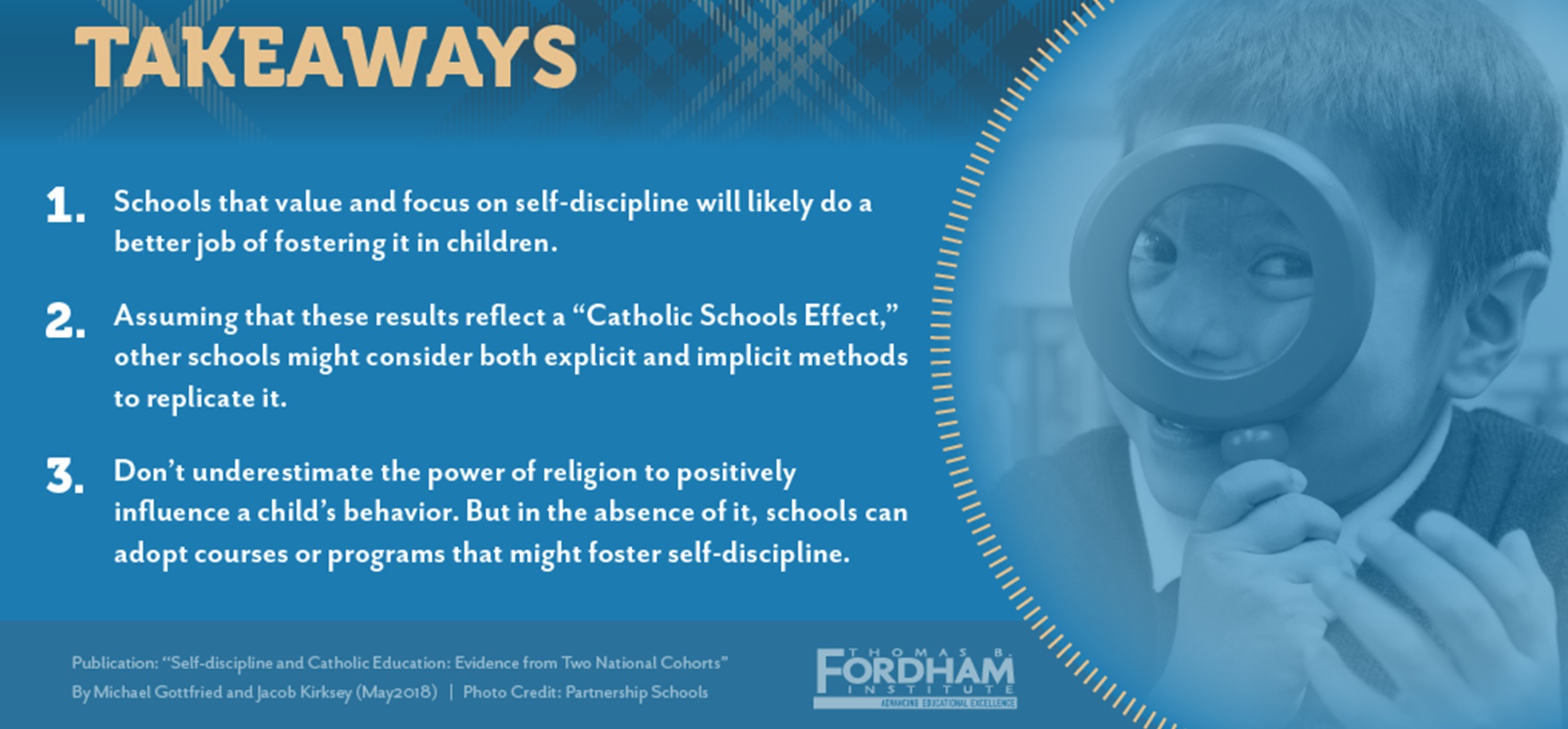Fordham Institute Study Explores Effects of Catholic Schooling on Self-Discipline
In a recently released study on the potential effects of Catholic schooling on self-discipline, the Thomas B. Fordham Institute explored whether students in Catholic school actually exhibit more self-discipline than their peers. If so, do those schools have something to teach other public and private schools about how self-discipline can be fostered?

Download the report Self-Discipline and Catholic Education: Evidence from Two National Cohorts
The study revealed three key findings:
- Students in Catholic schools are less likely to act out or be disruptive than those in other private schools or in public schools. According to their teachers, Catholic school children argued, fought, got angry, acted impulsively, and disturbed ongoing activities less frequently.
- Students in Catholic schools exhibit more self-control than those in other private schools or public schools. Specifically, they were more likely to control their temper, respect others’ property, accept their fellow students’ ideas, and handle peer pressure.
- Regardless of demographics, students in Catholic schools exhibit more self-discipline than students in public schools and other private schools. Thus, there is at least some evidence that attending Catholic school may benefit all sorts of children.
Michael Gottfried, Associate Professor at the University of California, Santa Barbara (UCSB) and Jacob Kirksey, a doctoral student at UCSB, helped analyze the data and co-wrote the report. Gottfried and Kirksey analyzed two waves of nationally representative data on elementary school students that were collected as part of the Early Childhood Longitudinal Study, Kindergarten (ECLS-K).
The report was made possible through the support of the Lynch Foundation and the Healey Education Foundation, both FADICA members, among other organizations.
Religion can mold hearts and minds in ways that suspensions, restorative justice, and Positive Behavioral Intervention and Supports (PBIS) can’t begin to match. That doesn’t mean that such secular approaches—and schools—don’t have their place. Of course they do. And so do character education, ethics classes, and civics, all of which can contribute to the development of self-discipline. School leaders should choose the options that best suit their kids and culture. That said, our results suggest that Catholic schools in particular are doing something meaningful in the realm of self-discipline. — Executive Summary, Self-Discipline and Catholic Education

